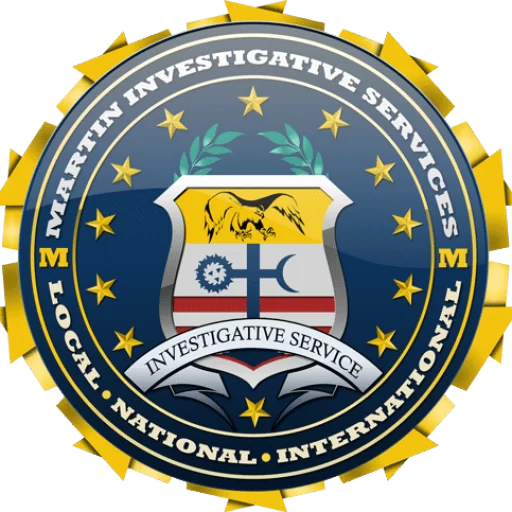
Private investigator background check
A background check is a process in which an individual’s criminal, commercial, or financial records are reviewed. Background investigation companies often conduct this type of check for employers before hiring an employee, landlords before renting a property to a tenant, and organizations before accepting a new member.
Background checks can help ensure that the people involved in these transactions are who they claim to be and that they do not have a history of behavior that could be problematic. The specific records and information that are checked as part of a background check can vary depending on the purpose of the check and the laws that apply to it. You need a reliable private investigator background check for this. However, before getting into that, we should understand why background checks are essential.


Why are background checks necessary?
Background checks are essential because they can help ensure the safety and well-being of individuals, organizations, and communities. For example, an employer may conduct a background check on a job applicant to ensure that the applicant does not have a criminal history that could pose a risk to coworkers or customers.
A landlord may conduct a background check on a potential tenant to ensure that the tenant has a history of paying rent on time and taking care of rental properties. An organization may conduct a background check on a new member to ensure that the individual does not have a history of behavior incompatible with the organization’s values or mission.
Can private investigators do background checks
Our team of private investigators examines all aspects of a person’s life and can verify the accuracy of information on an application or resume. We conduct thorough background checks that include criminal, professional, and even personal history. This can help individuals and companies make informed decisions when selecting potential employees or partners.
What are Background Checks used for:
- To verify the accuracy of information an individual provides: A background check can help confirm that the information an individual has provided about themselves, such as their employment history, education, and criminal record, is accurate.
- To uncover potential red flags: A background check can reveal any issues or concerns in an individual’s past that may be relevant to the situation. For example, a criminal record or a history of financial problems could be relevant to an employer or a landlord.
- To protect individuals and organizations from fraud: A background check can help identify individuals attempting to deceive or defraud others. For example, a background check can reveal if an applicant has provided false information on their resume or application.
- To protect individuals and organizations from theft: A background check can help identify individuals who may be at risk of stealing from an organization or its members. For example, an individual with a history of financial crimes or embezzlement could pose a threat to an employer.
- To protect individuals and organizations from violence: A background check can help identify individuals who may pose a risk of violence to others. For example, an individual with a history of violent crimes or a restraining order could pose a threat to an employer or a landlord.
Background checks can provide information that helps individuals make informed decisions about their interactions with others. By verifying the accuracy of the information provided by an individual and by uncovering any potential red flags, background checks can help protect individuals and organizations from fraud, theft, violence, and other harm.
What do they look for in a background investigation?
The specific records and information that are checked as part of a background investigation can vary depending on the purpose of the inquiry and the laws that apply to it. Some common types of records and information that you may review during a background investigation include:
Criminal history
A criminal history background check is the process where an individual’s criminal records are reviewed. This type of check is often conducted by employers, landlords, and organizations with help from a private investigator background check before making a decision that could be affected by an individual’s criminal history, such as hiring an employee, renting a property, or accepting a new member.
Criminal history background checks can reveal information about an individual’s arrests, charges, convictions, and incarceration. This information can be helpful to employers, landlords, and organizations to make informed decisions about their interactions with others. For example, an employer may want to know if a job applicant has a criminal history that could make them a threat to customers or coworkers.
A landlord may want to know if a potential tenant has a history of behavior that could disrupt the community or damage the property. An organization may want to know if a new member has a history of conduct compatible with the organization’s mission or values.
Employment history
An employment history background check verifies an individual’s work history and job performance through background investigation companies. This can involve checking references, reviewing employment records, and verifying the individual’s dates of employment and job titles.
Employment history background checks are often done for employment or security clearance purposes. Employers may want to verify an applicant’s employment history to assess their job performance, skills, and experience and to determine if they are a good fit for the company.
To conduct an employment history background check, you can ask the individual for a list of their previous employers, job titles, and dates of employment. You can then contact the employers to verify the information and ask for references or more detailed information about the individual’s job performance.
It’s essential to remember that employers are generally only willing to provide limited information about former employees and may not be able to discuss specific details like salary or disciplinary actions.
Financial history
A financial history background check is when an individual’s financial records are reviewed. Employers, landlords, and organizations often conduct this check before making a decision that could be affected by an individual’s financial history, such as hiring an employee, accepting a new member, or renting a property.
Financial history background checks can reveal information about an individual’s credit score, bankruptcies, foreclosures, and outstanding debts. This information can be helpful to employers, landlords, and organizations to make informed decisions about their interactions with others.
For example, an employer may want to know if a job applicant has a history of financial problems that could affect their job performance or reliability. A landlord may want to know if a potential tenant has a history of paying rent on time and taking care of rental properties.
Personal references
A personal reference background check is a process of verifying the information provided by an individual about their references, typically as part of a job application or rental application. This can involve contacting the references and asking questions about the individual’s character, work ethic, skills, and other relevant qualities.
Personal references are typically people who know the individual well and can speak to their character and abilities. They might include former colleagues, supervisors, teachers, or friends.
To conduct a personal reference background check, ask the individual for their references’ names and contact information. You can then contact the references by phone or email to ask questions about the individual. It’s essential to be respectful of the references’ time and to follow up on any discrepancies or inconsistencies in the information provided.
Personal reference background checks can be an essential part of the decision-making process. They can provide insight into an individual’s character and personality traits that may need to be evident from other background checks.
Professional licenses and certifications
A professional licenses and certifications background check verifies an individual’s qualifications and credentials in a particular field or profession. This can involve checking whether the individual holds any professional licenses or certifications required to practice in their field and ensuring that these licenses or certificates are current and valid.
Organizations, such as professional societies, government agencies, or private certification bodies, can issue professional licenses and certifications. They may be required for certain types of work or to demonstrate expertise in a particular area.
To conduct a professional licenses and certifications background check, you can ask the individual for copies of their licenses and certifications and verify that they are valid through the issuing organization. You can also check for disciplinary actions or restrictions on the individual’s licenses or certifications. It’s essential to remember that the availability and requirements for professional licenses and certifications can vary by state or country.
Military service
A military service background check is a process of verifying an individual’s military service and discharge status. This can involve checking military records to confirm that the individual served and obtaining details about their service, such as their rank, duty assignments, and any awards or decorations they received.
Military service background checks are often done for employment or security clearance purposes. Employers may want to verify an applicant’s military service to assess their leadership skills, discipline, and ability to work as part of a team.
To conduct a military service background check, you can request a copy of the individual’s military personnel records, also known as a DD Form 214. This form provides a summary of the individual’s military service, including their dates of service, duty stations, and discharge status. You can request a copy of the DD Form 214 from the National Archives and Records Administration or the individual’s branch of service.
Drug test results
A drug test analyzes a sample of an individual’s biological material, such as urine, blood, or hair, to determine if they have been using drugs. Drug tests are often done for employment, legal, or medical purposes, as drugs can impair an individual’s judgment, coordination, and ability to perform specific tasks safely.
Employers may require drug tests as part of a pre-employment background check to ensure that their employees are not under the influence of drugs while on the job. Drug tests may also be required for certain types of employment, such as jobs in transportation, aviation, or public safety, where drug use could pose a safety risk.
To conduct a drug test, a sample of the individual’s biological material is collected and sent to a laboratory for analysis. The laboratory will test the sample for the presence of drugs or their metabolic byproducts, and background investigators will report the test results to the requesting party. There are various types of drug tests available, and the specific test used can depend on the purpose of the test and the substances being tested for.
Social media profiles
A social media background check reviews an individual’s online presence and activity on social media platforms to gather information about their character, interests, and reputation. This can include looking at their profile information, posts, photos, and interactions with other users.
Social media background checks are often done for personal or professional reasons, such as to get to know someone better, verify their identity, assess their trustworthiness, or protect their safety. You can also use them to gather information for making informed decisions, such as hiring someone or entering into a business partnership. It’s essential to remember that not all information on the internet is accurate or up-to-date, so it’s vital to verify any information you find through multiple sources. It’s also important to respect an individual’s privacy and to follow all relevant laws and regulations when conducting a social media background check.
It’s important to note that the types of records and information that background investigators can check during a background investigation are often regulated by law. In some cases, certain types of information may be off-limits or subject to certain restrictions. There are several privacy considerations to keep in mind when conducting background checks.
It is crucial to ensure that you have the legal authority to conduct a background check on an individual. In many cases, this will require obtaining the individual’s consent as a signed release.
It is also essential to be mindful of the types of information you are collecting and to only gather information relevant to the purpose of the background check.
For example, suppose you are conducting a background check for employment purposes. In that case, you may want to collect information about an individual’s employment history, education, and criminal record. Still, collecting sensitive or personal information such as their medical history or financial information would not be appropriate.
Finally, ensuring that any information collected through background investigation companies is kept secure and only shared with those who have a legitimate need to know is vital. This may involve implementing safeguards such as password protection and encryption and limiting access to only those authorized to view the information.
Can a private investigator run a credit check?
Generally, background investigators can only run a credit check on an individual if they have the individual’s written consent or are authorized by law. In the United States, the Fair Credit Reporting Act (FCRA) regulates the use of credit reports and other personal information for employment and credit-related purposes.
Under the FCRA, you can only obtain a credit report for permissible purposes, such as evaluating an individual for employment, credit, insurance, or housing. A private investigator would need to have a proper purpose for obtaining an individual’s credit report and would also need to follow the FCRA’s requirements for obtaining and using credit reports.
There are some exceptions to these rules, such as in the case of a criminal investigation or other law enforcement matter, where a private investigator may obtain an individual’s credit report with the proper legal authorization. However, in general, a private investigator would only be able to run a credit check on an individual with the individual’s consent or legal permission.
Can a private investigator find out if someone has a criminal record?
A private investigator may be able to find out if someone has a criminal record, but it depends on the specific information and resources available to the investigator.
In the United States, criminal records are generally considered public information. They are available to the general public through various sources, such as online court records, police departments, and state and federal repositories of criminal records. Background investigation companies can access these records and gather information about an individual’s criminal history.
However, the availability and accuracy of criminal records can vary, and a private investigator may not always be able to obtain complete or up-to-date information. Additionally, some criminal records may be sealed or expunged, which means they are not publicly available. In these cases, a private investigator may not access the documents.
Sealed criminal records
Sealed criminal records are records of arrests, charges, or convictions ordered to be kept confidential by a court. Sealed records are not accessible to the general public and are not typically considered when conducting a background check.
There are various reasons why a criminal record might be sealed, such as to protect the individual’s privacy, prevent discrimination, or give the individual a chance to rebuild their reputation. Sealed records may still be accessible to certain government agencies, such as law enforcement or immigration authorities. Still, they are generally unavailable to the public or private employers or landlords.
Not all criminal records are eligible to be sealed, and the process for sealing a criminal record can vary by jurisdiction. In general, an individual must petition the court to have their record sealed and meet specific eligibility criteria, such as completing mandatory sentences or probationary periods and not having any new criminal charges.
Public criminal records
Public criminal records are records of arrests, charges, and convictions that are available to the general public. These records are typically maintained by government agencies, such as courts, police departments, and state or federal repositories of criminal records.
Public criminal records may include information such as the individual’s name, date of birth, mugshot, charges, and disposition of the case. They may also include details about the individual’s sentence, such as fines, probation, or imprisonment.
Public criminal records are generally considered general information available to anyone who wishes to access them. Depending on the agency and the specific documents requested, they may be accessed in person, by phone, or online.
It’s essential to remember that the availability and accuracy of criminal records can vary, and not all are necessarily included in public records.
It’s also important to remember that a private investigator must follow all relevant laws and regulations when accessing and using criminal records, including privacy and data protection laws.
Can a private investigator see Internet history?
Background investigators can see someone’s internet history using specialized tools or software. Most internet service providers (ISPs) do not allow access to a person’s browsing history to anyone except the account holder. Additionally, even if a private investigator could obtain access to a person’s internet history, it would likely be legal to do so with the proper authorization. A private investigator must obtain a warrant or legal consent to access someone’s internet history.
When can a private investigator see internet history?
Under certain circumstances, background investigation companies can access a person’s internet history. For example, suppose a PI is working on a case involving cybercrime or online fraud. In that case, they may obtain a warrant to access a person’s internet history as part of their investigation.
PIs may also access a person’s internet history if they have been hired by a spouse or family member who suspects that the person is engaging in inappropriate or illegal activities online. In these cases, the PI would need the proper legal authorization to access the internet history.
It’s worth noting that even if a PI can legally obtain access to a person’s internet history, they may still face technical challenges. Many ISPs encrypt their users’ browsing data, making it difficult for outsiders to access it. Additionally, some websites and apps use secure connections or other methods to protect user data, which may make it difficult for a PI to access a person’s internet history even if they have legal authorization.
Conclusion
There are many procedures involved with making background searches, and you’ll need trusty background investigators and experienced private investigations firms to help you navigate the complexities. Our firm’s network comprises former Secret Service, IRS, FBI, and DEA agents who are skilled and ready to help you through the process. Call us at 1-800-577-1080 or fill out our web form for help with your background search.

Reasons for Hiring a Private Investigator – Martin PI
19 Reasons to Hiring a Private investigator Reasons to Hire a Private Investigator If you live in California and a metropolitan like Los Angeles, Orange County, San Francisco, San Diego, or any other county, understanding how to hire a private investigation company is...
Missing Person Search: Find Loved Ones Quickly & Easily
Missing Person Search It's vital to begin your search quickly if you notice your loved one is missing. It would help if you started by calling the police department and filing a missing persons report. Next, you must begin your search and contact the media if the...
Missing Person Private Investigator Services
Missing Person Private Investigator Services In the United States, there are almost 600,000 names added to the nation's registry of missing persons each year. Even so, you might be surprised to learn that it is only some people who disappear that wind up on the list....
Let Us help you Bring Your peace back!
Private Investigation Near Me - PI Near Me“Our team of private investigators are are ready to help you. Your privacy is important to us! Serving states nationally.
Client Testimonials

I’ve represented individuals and businesses (international and local) for close to fifty years, and I’ve called on Martin Investigative Services more times than I can count, often on a rush basis, for help throughout the world, on a number of different types of assignments. I’ve never been disappointed. I’ve always received swift, cost-effective and USEFUL information, which has wound up “saving the bacon” of our clients and making us shine in their eyes. I recommend them without any reservation.

Martin Investigative Services is truly one of the best run organizations we have worked with. Fair, efficient and professional. Tom Martin in particular exudes confidence and experience and isn’t afraid to tell it like it is. That’s something we can rely on.

Successful people know that to be the best, you model the best. I cannot recommend Martin PI any higher! In a five-minute conversation with experienced people you can save thousands by bypassing sales types. They do this by cutting directly to the heart based on years and years of passionate pursuit of best practices and adding massive value to their clients. They are an invaluable part of my team and Tom is my most valued mentor!

Martin Investigative Services has performed background checks, private investigation, surveillance and bug sweeps for our clients. They have also served difficult process in lawsuits. They have performed unquestionably and unfailingly to perfection. We will always call Martin first – and hope he hasn’t been called yet by the other side!

We have used Martin Investigative Services for three decades. Their work is exemplary; reports are perfect and their testimony is very professional, with great judge and jury appeal. We will not use anyone else for our investigations.

It has been my pleasure to work with Martin Investigative Services over the past 30 plus years on many investigations as well as other security related matters. When I need answers and I need them fast I know that a simple call will get me answers that are succinct, current and coming from a supremely knowledgeable source.
MartinPI Operates throughout the United States and foreign countries
We can have a team ready in 2 days. Are you ready?Our network is composed of private investigators that are former DEA, FBI, IRS, and Secret Service agents.
We respect your time and thank you for stopping by. Please look around and learn about our services. Should you need help today, simply press the button below.

call us today
Martin Investigations is second-to-none!See and hear Thomas Martin speak on various solved cases. After 50+ years, we are ready to help you with your investigative matter.
Start by contacting us and a meeting will be set up. Call (800) 577-1080



